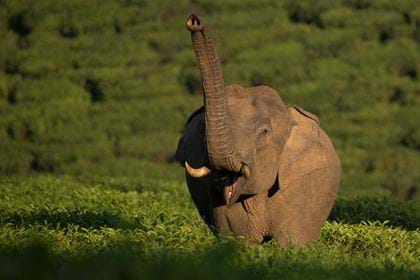World Elephant Day 2023

On World Elephant Day, we are pleased to share some of our important work with partners to facilitate coexistence. We are working with leading local conservationists, and communities on the ground to focus on important areas of biodiversity, supporting and pioneering lasting solutions to protect both habitat and wildlife. Our aim is to leave behind a legacy for wildlife and foster coexistence between people and the wildlife they share spaces with.
Here are some recent achievements from our projects:
- As part of our UK Govt.-supported Darwin Initiative project in Northeast India, we, along with our partner Aaranyak, formed seven Rapid Response Units (RRUs) comprising of over 200 community members in Eastern Assam, India, to serve as an early warning mechanism to mitigate human-elephant conflict and facilitate coexistence. We also trained over 200 community households in Assam and Meghalaya on alternative livelihood options, such as fisheries and poultry farming, and handloom techniques, to supplement losses incurred from crop foraging by elephants. Close to 80% of trainees were women. We firmly believe that availability of sustainable alternative livelihood fosters better coexistence with wild elephants, improves community well-being and contributes towards biodiversity conservation.
- The wonderful Nature Information Centre, set up by our partner, Nature Conservation Foundation and Holematthi Nature Foundation, recently celebrated five years of spreading awareness of the importance of preserving forests and biodiversity for the well-being of current and future generations. To date, they have enthralled over 12,000 visitors through interactive games and stories on protecting our precious planet.
- Following the success of the CoExistence Exhibition, we have set up the CoExistence Fund to support conservation initiatives in India. The first programme to be supported through the Fund is the Coexistence Fellowship Programme, in partnership with the University of Transdisciplinary Health Sciences and Technology and the Coexistence Consortium. It is enabling researchers and conservationists to understand, implement, and facilitate the coexistence paradigm in conservation. The first cohort comprises of 12 fellows and their projects are helping us understand human-wildlife conflict with even more species, such as snow leopards, sarus cranes, wolves, leopards and hyenas, as well as elephants.
At a time when wildlife populations in many countries are declining, our work in South Asia continues to provide positive examples of how local partnerships and local knowledge are leading the way to show the world how wildlife and people can coexist together.
Click here to find out more about our conservation work.
